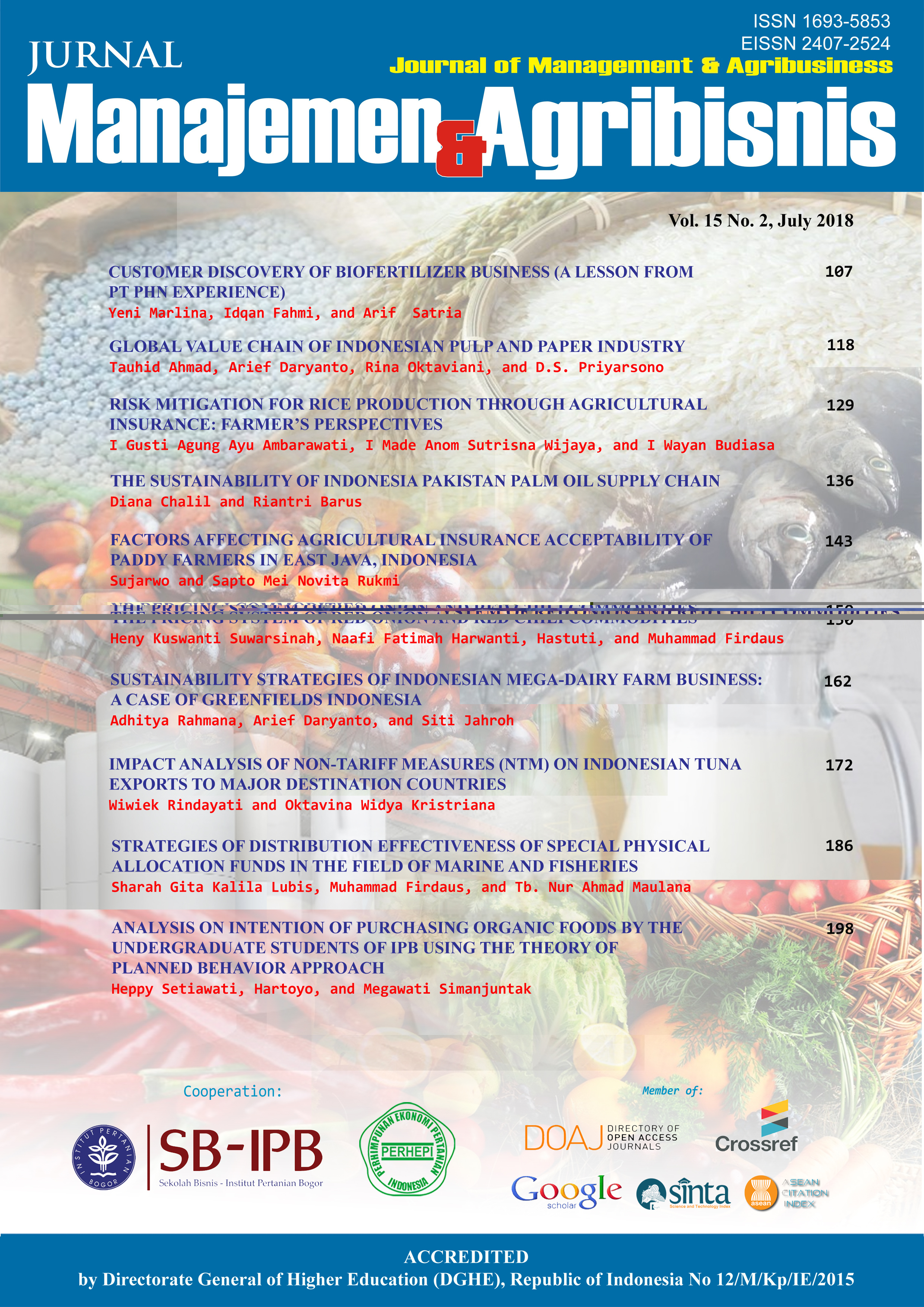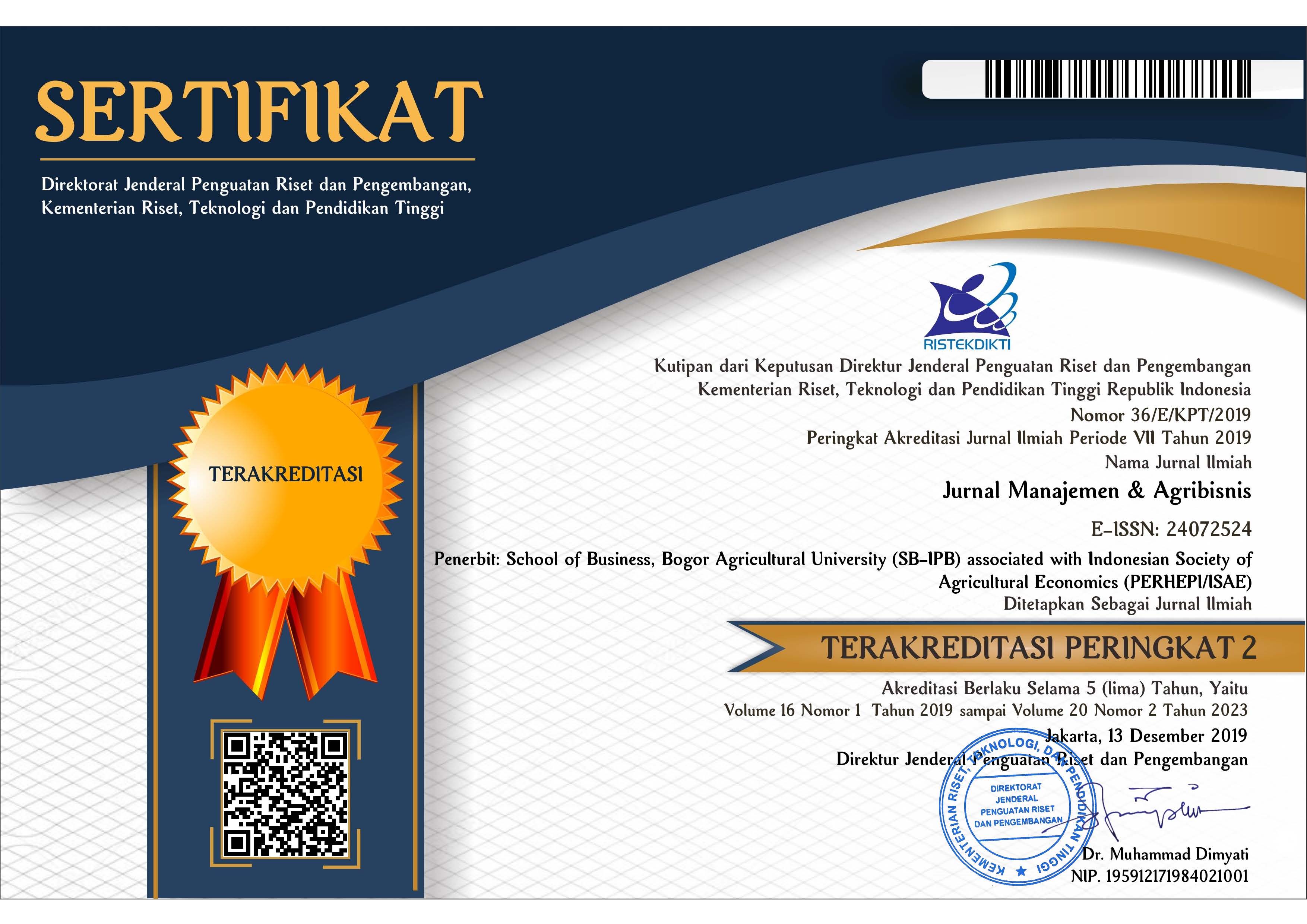Risk Mitigation for Rice Production Through Agricultural Insurance: Farmer’s Perspectives
DOI:
https://doi.org/10.17358/jma.15.2.129Abstract
Rice farming is susceptible to failure due to several risks including natural disasters of flood and drought as well as pest and disease attacks. Risk mitigation such as agricultural insurance is required to cope with the risks. This study aims to portray rice production risks to failure and farmer’s perception on the implementation of agricultural insurance in Bali province. Three regencies were selected purposively based on the area insured. A survey was conducted to 180 respondents who paid for the agricultural insurance (AUTP). Data were analyzed using descriptive qualitative analysis and chi-square test. Results of the research show that most rice farming risks to failure in Bali were blast and rat attacks. In terms of agricultural insurance implementation, all farmers accept the program as a mitigation risk to bridge rice farming failure. However, most farmers (85 %) asked for fully support of premium subsidy from the government while the rest agreed to pay for a-20 % of the premium. The result from the Chi-square test shows insignificant, implying that the distribution of farmers’ perception towards full subsidy of agricultural insurance is indifferent across locations. Implication of the study noted that the government and insurer need to socialize the agricultural insurance program more intensively covering premium payment, coverage and claiming.
Keywords: production risk, agricultural insurance, farmer’s perception, AUTP, Chi-square
Downloads
Downloads
Published
Issue
Section
License
Authors who publish with this journal agree to the following terms:
- Authors retain copyright and grant the journal right of first publication with the work simultaneously licensed under a Creative Commons Attribution License that allows others to share the work with an acknowledgement of the work's authorship and initial publication in this journal.
- Authors are able to enter into separate, additional contractual arrangements for the non-exclusive distribution of the journal's published version of the work (e.g., post it to an institutional repository or publish it in a book), with an acknowledgement of its initial publication in this journal.
- Authors are permitted and encouraged to post their work online (e.g., in institutional repositories or on their website) prior to and during the submission process, as it can lead to productive exchanges, as well as earlier and greater citation of published work (See The Effect of Open Access).


.png)



